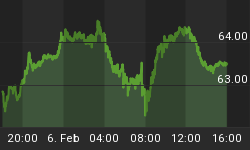The obvious big news for the week is the 25 basis point cut. Will the eleventh consecutive cut for a total of 4.75%, influence companies to increase capital expenditures or reverse the slowing of consumer spending. Unfortunately, this is unlikely for several reasons. The Financial Times carried several articles featuring a research paper from investment house HSBC’s. The paper states there are four factors that will lead to a slow, weak recovery. The first is that there is little reason for corporate America to start investing in capital investments. There is too much idle capacity and profits have fallen every year since 1997. The world economy is heading for recession as well and will not be able to offer any assistance. In light of falling tax revenues and stepped up security and defense spending, the government will not be able to offer a meaningful stimulus package, without raising fears of deficit spending. Lastly, the consumer tapped themselves out and will likely start retrenching as layoffs mount. This of course would push the economy deeper into recession and could start a cycle that would difficult to control.
The research paper also noted the difference between planned and unplanned recessions. HSBC defines a planned recession as one where vigorous steps are taken to combat inflation, like the early 1980’s recession. Conversely, an unplanned recession “are associated with collapsing private sector expectations for economic growth and profits and, from a policy perspective, are very difficult to turn around.” The 1959 version of Alan Greenspan thought something very similar:
"Once stock prices reach the point at which it is hard to value them by any logical methodology, stocks will be bought as they were in the late 1920s – not for investment, but to be unloaded at a still higher price. The ensuing break could be disastrous because panic psychology cannot be summarily altered or reversed by easy-money policies."
The younger and wiser Greenspan eludes to how during the boom, investor expectations about the future of the economy and corporate profits become inflated. Rising asset prices leads to rising consumer confidence, which when left unchecked leads investors to feel bulletproof. These inflated assets are then leveraged upon. Once expectations are reduced there is a shift again by investors and corporations to rebalance their finances, which stunts policy-lead attempts at stimulating the economy.
Also this week, several economists pointed to the largest drop in inventories in 19 years as proof that the excesses are being worked off. The only problem is sales fell even more. Inventories dropped 1%, following a 0.4% decline in September, but sales fell 1.4% in October, following a 1.2% decline in September. Sales were weaker than the inventory reduction almost across the board. Computer equipment inventories fell 3.2%, but sales fell 3.7%. Inventory of machinery fell only 0.1%, while sales fell 5.3%
Car rental companies need to go and retake Econ 101. Several of the car rental agencies are increasing their rate because demand is down from the reduction in business travel. I’m not sure how higher prices stimulate demand. Hertz was the first to raise its rates, about 10% for daily rates and 26% for its weekly rates and has a 14% jump for weekend rates planed for next month. Rental agencies have also reduced their fleets by 20%-25% due to the lower business travel. Now they hope the industry has an inelastic demand curve. I would hate for it to have the reverse effect and curtail more business travel. The car rental agencies are forecasting to when a recovery happens and their fleets are smaller they will have more pricing power than they did before the slowdown.
This brings up a point in the inflation / deflation debate. Companies realized they over-invested and now are reducing capacity by 20%, 25% or more. After experiencing this painful lesson, they will be much more cautious adding back capacity when the recovery does takes root. With demand and supply in much greater balance, companies might be able to gain pricing power. Of course this would lead to a greater risk of inflation in consumer goods when a recovery starts to materialize.
Health-care is proving to be the most inflationary force in the economy. A survey from the William M. Mercer Inc. reveals it is only getting worse with no end in sight. The survey indicates the average cost of health-care benefits rose 11.2% in 2001. Companies are responding to the increases by passing along more of the cost to their employees. Increasing the deductible is one of the easiest ways to lower health care costs, and the median deductible doubled in 2001 to $500. The largest previous jump was only $50. Health care costs are expected to continue. Blaine Bos, the chief author of he survey, said, “We’re going to be looking at a period of about four years of double-digit inflation.” These increases will not only hurt small companies, but large companies that are tied to union contracts are stuck covering the increase. This is yet another straw on the camels back for corporate profitability and consumer expenditures.
The advertising industry has been hurt by companies trimming discretionary cost. During the third quarter, the decline in advertising spending accelerated for the second time to 12.2%. This follows declines of 5.2% and 6.6% in the first and second quarters, respectively. National newspapers have been hit the hardest, 21.5% decline year-to-date from last years levels. Some companies are slashing ad spending. GM cut ad spending by 28.4%, Philip Morris by 20.6%, and Schwab by 35%.
I’ll just quickly mention that retail sales continue to prove lackluster. The International Council of Shopping Centers reported sales at mall-based specialty retailers fell 4.6% during the second week of the holiday shopping season compared to last year.















